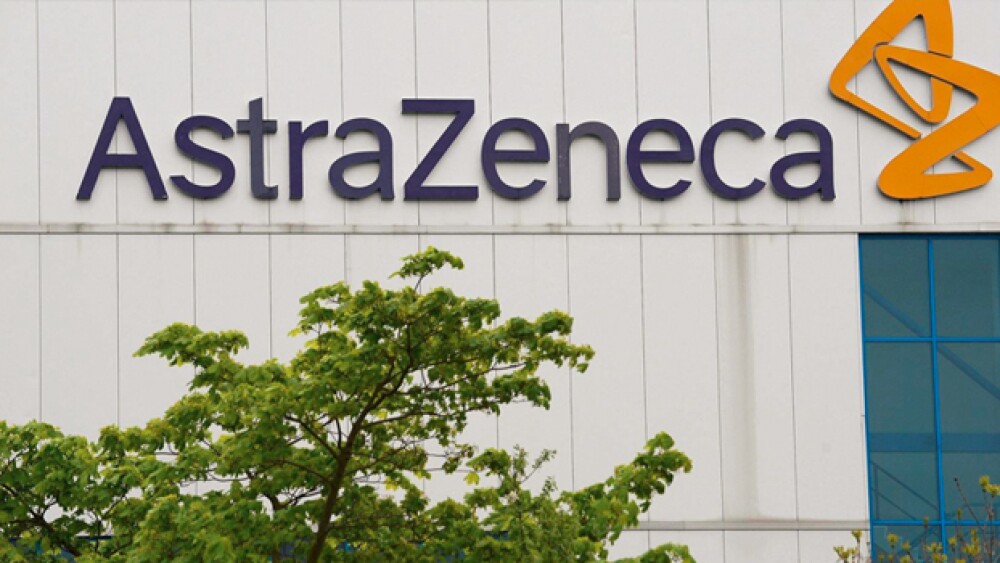Astra and its MedImmune division announced that two Phase III clinical trials of tralokinumab for severe, uncontrolled asthma failed to meet their primary endpoints.
AstraZeneca and its MedImmune division announced that two Phase III clinical trials of tralokinumab for severe, uncontrolled asthma failed to meet their primary endpoints.
The two trials, STRATOS 2 and TROPOS, were evaluating tralokinumab, an anti-interleukin-13 (IL-13) human monoclonal antibody in asthma. In STRATOS 2, the compound did not show a statistically-significant decrease in the annual asthma exacerbation rate (AAER), which was the primary endpoint compared to patients receiving placebo. The patients had severe, uncontrolled asthma and increased levels of Fractional exhaled Nitric Oxide (FeNO), a biomarker.
In the TROPOS trial, tralokinumab didn’t hit a statistically-significant decrease in oral corticosteroid (OCS) use, which was the primary endpoint. These patients received tralokinumab in addition to standard of care in patients dependent upon OCS.
“The results are disappointing as we had hoped that tralokinumab would benefit patients with severe asthma, which is a complex disease with limited treatment options today,” said Sean Bohen, AstraZeneca’s executive vice president of Global Medicines Development and chief medical officer, in a statement.
The drug had also failed in the STRATOS 1 Phase III clinical trial in May. That study evaluated the drug compared to placebo in the annual asthma exacerbation rate. STRATOS 2 was designed to work around the STRATOS 1 failure, evaluating a subgroup of patients the company expected to respond better to the drug. In 2016, AstraZeneca/MedImmune shuttered its program evaluating tralokinumab in idiopathic pulmonary fibrosis.
“Interim analysis of a Phase II study in subjects with mild to moderate IPF showed no safety issues, but a lack of efficacy on clinical end points of IPF Progression,” an AstraZeneca spokesperson said in a statement at the time. “The analysis met pre-specified criteria for futility and dosing of study drug was stopped. The underlying biological drivers of IPF are incompletely understood but these results suggest that IL-13 is not a key mediator of disease progression in this population. It is well accepted that the disease pathophysiology underlying IPF is both complex and very different to that of asthma and AD (atopic dermatitis). IL-13 is a key Th2 cytokine implicated in both asthma and AD and we are committed to the ongoing program of studies.”
However, their recent failures suggest that IL-13 may not be the best route for asthma, either.
In 2014, AstraZeneca’s chief executive officer Pascal Soriot indicated the company’s plans for its respiratory disease pipeline were targeting subpopulations that responded to various mechanisms, IL-5 and IL-13. And in 2015, AstraZeneca partnered with Abbott to create a companion diagnostic test to identify patients with biomarkers that predicted upregulated IL-13.
In March 2016, Roche reported that its two Phase III trials of lebrikizumab, another drug that affects IL-13, had mixed results in severe asthma. In those cases, the trials were identical, evaluating the same biomarkers.
AstraZeneca’s ATMOSPHERE program is made up of 2,298 patients at 571 sites in 27 countries. It includes STRATOS 1 and 2, TROPOS, MESOS and Japan Long-Term Safety (LTS) trials. MESOS is a Phase II multi-center, randomized, double-blinded, parallel group, placebo-controlled trial for 12 weeks that evaluates tralokinumab administered subcutaneously every two weeks on airway inflammation in adults with uncontrolled asthma that requires continuous treatment with ICS, with or without other asthma controllers. The Japan LTS is designed to evaluate the drug’s safety for 52 weeks in Japanese adults and adolescents with asthma inadequately controlled on ICS plus LABA.





